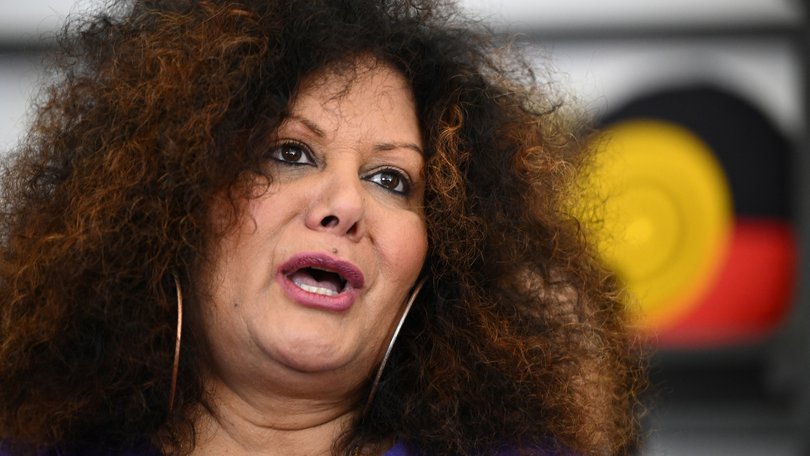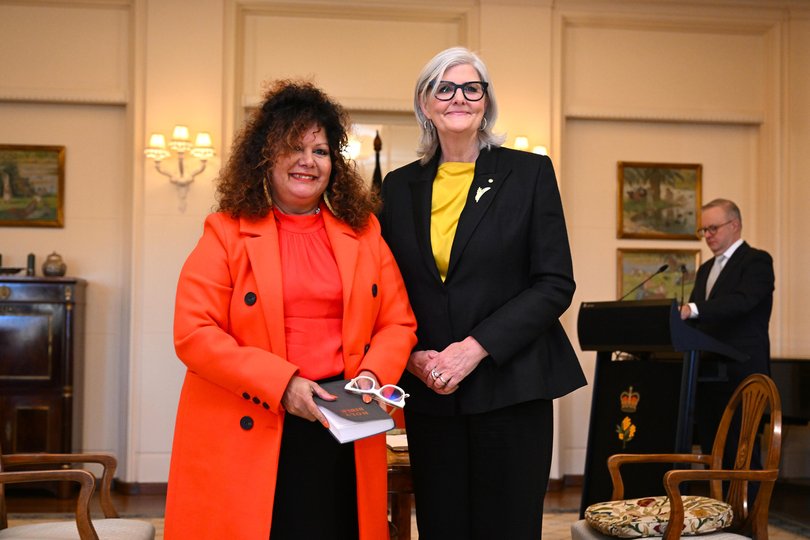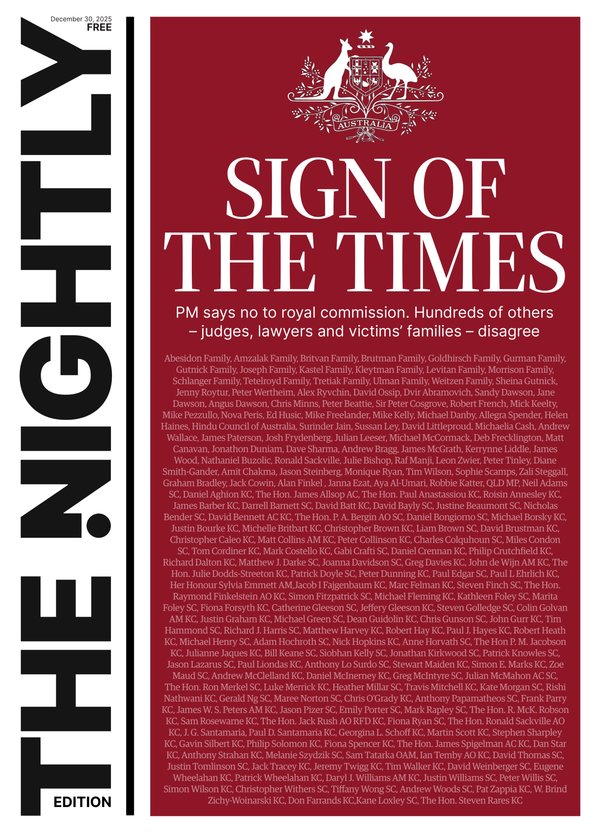Malarndirri McCarthy is the new Indigenous Affairs minister. She faces an extremely difficult task

Linda Burney, Minister for Indigenous Australians, announced her retirement from politics last week, and Labor has quickly appointed Northern Territory Senator Malarndirri McCarthy to take over the portfolio.
McCarthy comes into the position at a difficult time. Burney was a strong advocate for Indigenous rights, but her tenure as minister finished on a sour note.
The defeat of the Voice to Parliament proposal at last year’s referendum has increased disillusionment in Indigenous communities about the role of the federal government on key Indigenous issues. Since the referendum, Indigenous affairs have been largely absent from national politics.
Sign up to The Nightly's newsletters.
Get the first look at the digital newspaper, curated daily stories and breaking headlines delivered to your inbox.
By continuing you agree to our Terms and Privacy Policy.Amid this lack of direction from Canberra, state and territory governments are making progress on issues such as Treaty, agreement-making, and establishing state advisory bodies. South Australia held elections for its First Nations Voice to Parliament in March.
There is declining interest from the public on Indigenous issues, which is at its lowest since 2021. This has implications for government and industry support for Indigenous policy and advancement more generally.
Declining voter turnout in remote Indigenous communities continues to be an issue for governments. This raises ongoing questions about how to increase Indigenous participation in democratic processes. After the referendum loss last year, turnout in upcoming elections is likely to decline further in the absence of some unheralded solution.

Territory issues, national significance
While these factors make the Indigenous affairs portfolio a daunting task at a national level, some of the most demanding cases exist in McCarthy’s own senate seat. The NT is where she will face her toughest challenges and critics while in the ministry.
With an NT general election set for the August 24 and a federal election scheduled for next year, Labor’s lead in both jurisdictions is being narrowed. The Country Liberal Party (CLP) and Territory Labor are polling closely just under month out from the NT election.
In 2016, the CLP lost government and was reduced to two members. In 2020, it improved on that result and finished with eight seats in the assembly. The CLP has also acquired double the election donations relative to Territory Labor for this election, which could prove to be vital in campaigning for remote seats.
Although this battle is at the territory level, this election result will be an indication of support for Labor’s Indigenous policies.
The most pressing issue for Indigenous people in the NT continues to be housing. In March, the Albanese government announced a $4 billon agreement with the territory government, land councils and the peak remote housing body. The commitment under this deal is to build 270 homes a year over ten years in remote communities in the NT. However, with current housing and skills shortages nationwide, it is a wonder whether this goal and timeframe is realistic.
There are other significant issues that might make McCarthy’s role difficult: Territory Labor’s support for fracking and lack of commitment to Treaty.
Fracking has been an important issue for Aboriginal Traditional Owners of the NT for some time. It’s only become more of a focus since the Territory Labor government gave approval to expand development in the Beetaloo Basin. Some Traditional Owners of the region are opposed to fracking, citing concerns about environmental degradation and climate change.
In 2018, the Territory Labor government signed a memorandum of understanding with the four NT land councils to commit to working towards treaty-making with Aboriginal people. A Treaty Commission was established and given funds to consult with Indigenous communities throughout the NT. However, in 2022, after submitting a report on the viability of Treaty, the Commission was disbanded. No further progress has been made on Treaty to date.
Critics in close quarters
If that’s the policy, there’s also the politics to consider.
McCarthy’s strongest critic as minister will be the Shadow Minister for Indigenous Affairs, Jacinta Nampijinpa Price. Both senators are Traditional Owners of respective Aboriginal communities in the NT. Both have experience as presenters on TV. Both have expressed concerns about resource development in the NT.
They do share some similar characteristics, but what separates them is their views on the paths forward for Indigenous Australians. Price and McCarthy prioritise different ways to address Indigenous socioeconomic disadvantage.
Price has focused on social and family issues in Indigenous communities, while McCarthy on healthcare and employment. Both campaigned on opposite sides of the Voice referendum – the result of which will surely feature in future Indigenous policy debates, especially in the lead-up to the next federal election.
McCarthy’s most important role before next year’s election will to be communicate a clear agenda for Indigenous affairs to the public post-referendum. Indigenous communities and the Australian public are looking for leadership and planning moving forward.
Bartholomew Stanford, Lecturer in Political Science/Indigenous Politics (First Peoples), Griffith University
This article is republished from The Conversation under a Creative Commons license. Read the original article.
